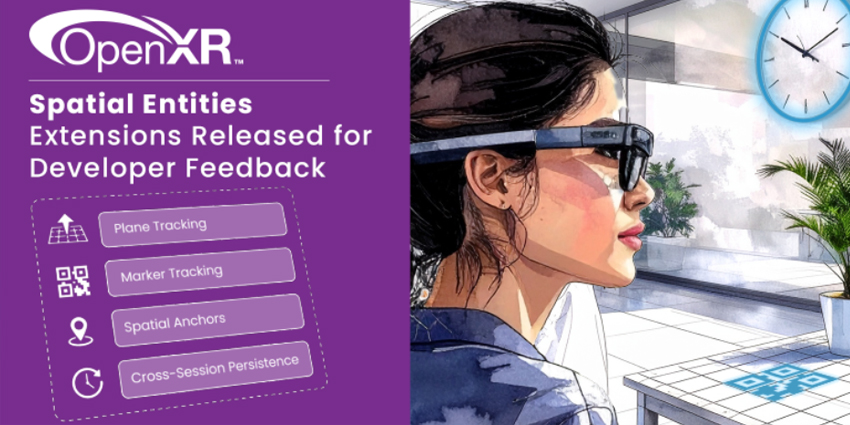The Metaverse relies on the ingenuity of firms capable of deploying serious gaming technologies to provide enterprises, clients, and users with interoperable, persistent, and secure immersive experiences.
One such company, Improbable, has developed the impossible with a breakthrough metaverse solution designed to facilitate massive-scale, concurrent user-based experiences for virtual events and gaming.
Herman Narula, Founder and Chief Executive Officer for Improbable, explored his company’s platform, noted its achievements, and discussed estimated milestones for its upcoming fiscal year.
Unprecedented Backend Technologies
Improbable launched its latest technology, Project Morpheus, last year, driving the growth of the company’s business and product development and leading to “a pretty dramatic shift in our commercial progress” for developing the Metaverse, Narula said.
According to its website, Project Morpheus offers a suite of technology components to build “high-scale multiplayer games.”
Speaking on the technology, he explained it had enabled “1,000s of people to interact together in the same world [and] an unprecedented level of interoperability between experiences,” which were rapidly adopted by non-gaming brands and companies seeking to build and operate the Metaverse.
The British firm had shifted from building games and content for the company to doing so for partners, significantly improving its revenues at the early stages of client relationships, he added.
Continuing, he said,
“Every single partner we bring on board is not creating a siloed Metaverse or platform, but a world that can interconnect with every other one […], which we’re really excited about”
Reimagining the Metaverse
According to the London-based firm, innovations such as non-fungible tokens (NFTs), new technologies, and improved immersive experiences were “driving a lot of interest and excitement” for the Metaverse market and enterprise capabilities compared to video game development.
He explained that the Metaverse was really about “taking existing brands and communities from sports, fashion, film and music” to receive an “unprecedented opportunity” to unite communities, and offer and monetise unique experiences with digital assets, virtual goods, and virtual lands.
Did you know that London is the most frequently mentioned city in Twitter conversations related to the #metaverse?
For many more insights, check out our full data study – available soon. 👀 pic.twitter.com/bxFgXkPV5l
— Improbable (@Improbableio) September 24, 2022
Metaverse technologies could transform businesses “in ways that are not normally possible for brands and companies to do,” he added.
Continuing, he said,
“We are excited by the fact that every sports league, every large community, every fashion brand, and every group with a large under-monetized, under-engaged community that is geographically distributed, has a potential opportunity to come into the Metaverse space”
Three ‘Improbable’ Challenges
Improbable has outlined and identified three primary challenges, including,
Current metaverse experiences were “generally, really underwhelming” and failed to provide users with sufficient experiences, Narula explained.
Improbable aimed to provide unique experiences across use cases “at a very large scale.” Doing so would change the “economics and opportunity within the space for a lot of people,” he added.
Improbable evolved its offer based on the increasing demand for metaverse experiences coming from non-gaming brands. Its end-to-end services have modified significantly over the years to support enterprises and users that did not “necessarily have a strong technical background or game experience.”
Existing gaming networking technology is restricted by how many operations per second it can process. Metaverse projects on Improbable’s M² network leverage its Morpheus technology, which is now capable of over 2 billion operations per second.
For context, the network processes 25,000 times as many operations per second as a 100-player battle royale game and allows over 30,000 players in the same space, with each fully customisable, uniquely animated, and capable of viewing and interacting with each other.
Financial Performance Figures
The announcement comes as the metaverse firm has experienced meteoric growth in recent months, where the company also reported that substantial investment continued in promising Defence activity.
The enterprise also launched its end-to-end metaverse strategy late last year, leading to improved financial profiles. Improbable estimates growth of 2.5 to 3 times compared to 2021, backed by metaverse and gaming services.
Which industries are generating a buzz in the #metaverse?
Our next data study provides a clear picture of conversations in this space – and the opportunities to be seized.#Metaversations | https://t.co/immxqk8LeB pic.twitter.com/hMQBBxIMB6
— Improbable (@Improbableio) September 22, 2022
Improbable also revealed it had nearly reached a financing round of $100 million USD and a total valuation surpassing $3 billion, with Web3, decentralised finance (DeFi), and metaverse payments blockchain platform Elrond leading the round.
Elrond’s blockchain technologies have boosted throughput and execution speeds by 1,000 times, or over 100,000 transactions per second at a minimal cost.
Its Founder and Chief Executive, Beniamin Mincu, said the investment was “instrumental” for his company, adding,
“As we gear up for our X-Day early November, we aim to redefine the utility of blockchain, and gather our community to push beyond the limits of Web3. We are excited to invest and build together, at a critical time when the value and utility of the metaverse are being defined and shaped”
The news comes as many firms develop serious gaming technologies, or games-based innovations essential for future metaverse infrastructure. At a recent summit, an executive working with Microsoft explained that developing the Metaverse required expertise in four technical pillars: the user experience (UX), user interface (UI), developer environments, and market economy.
Numerous firms have begun deploying serious gaming technologies for global firms seeking to enter the Metaverse market. Microsoft acquired Blizzard Activision in an unprecedented $68.7 billion acquisition in late January, and Sony bought out Halo creators Bungie for a respective $3.6 billion, just after striking a major deal with Epic Games’ Unreal Engine.
Firms such as Tencent Holdings, one of the world’s largest gaming enterprises, have also begun developing metaverse infrastructure as it shifts to one of the world’s most disruptive and rapidly-developing tech markets.







